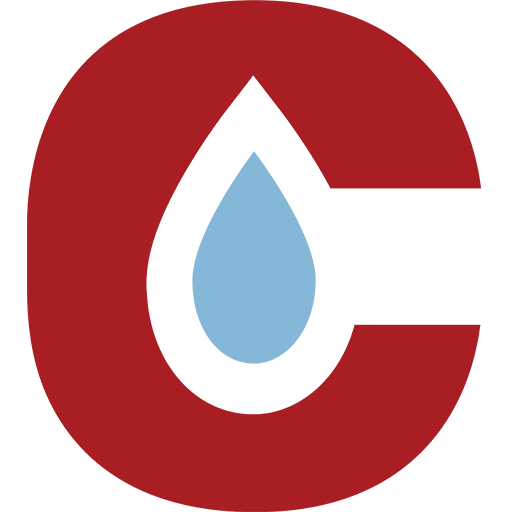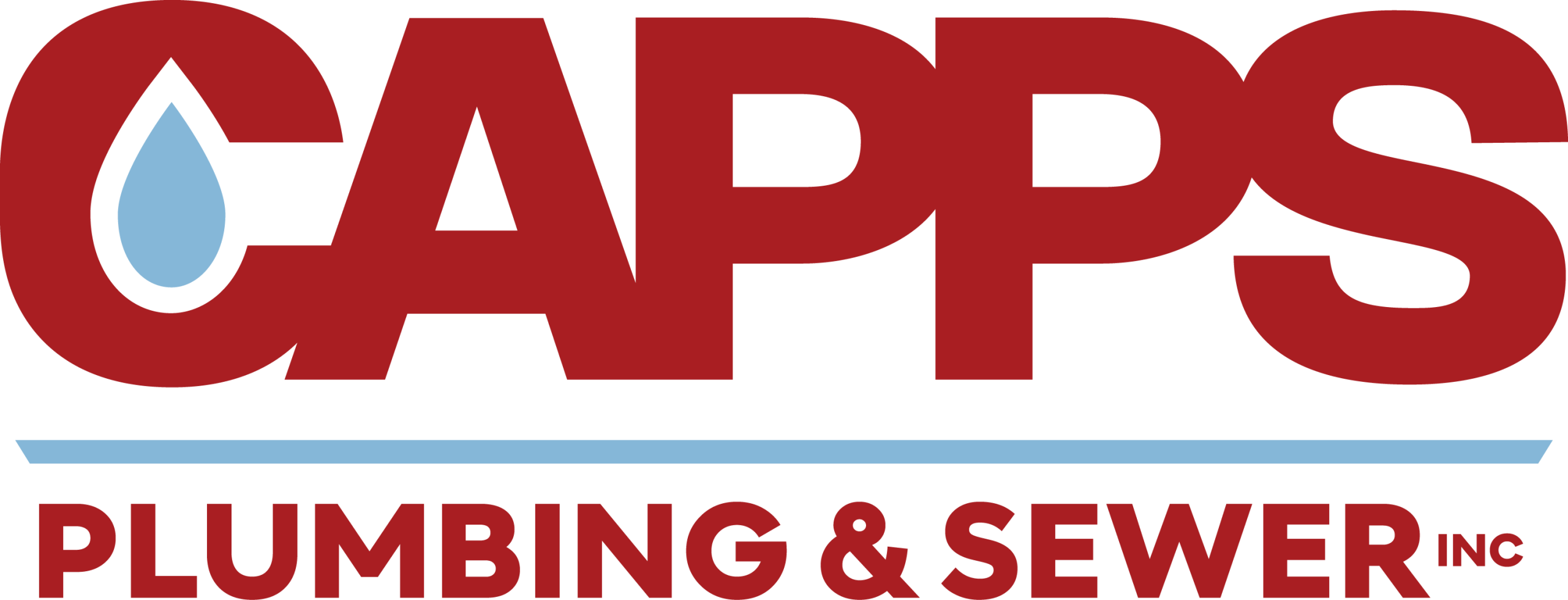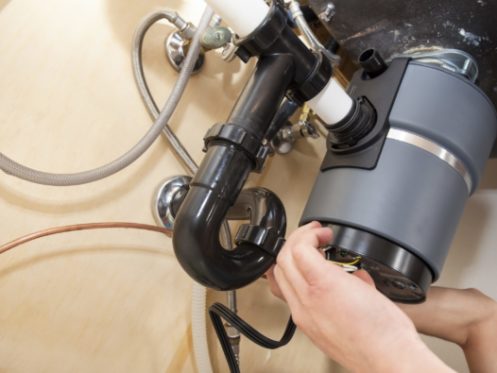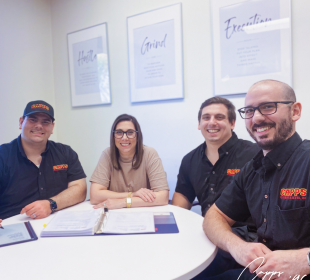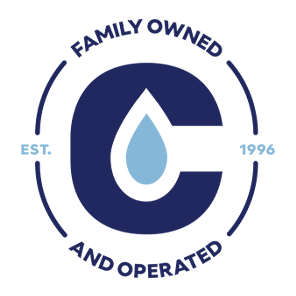A garbage disposal is a handy kitchen appliance that shreds food waste into pieces that are small enough to pass through your plumbing. Nothing is more frustrating than a garbage disposal that isn’t working or leaking.
Caution! Never put your fingers or hands into the disposal and never reach down into a garbage disposal!
Reasons Why a Garbage Disposal Isn’t Working
- If your garbage disposal won’t turn on, then there is most likely an electrical problem, not a plumbing problem.
- Is your garbage disposal humming, but not grinding? This usually means the inner flywheel is jammed.
- Did you find a leak coming from your disposal? Leaks can come from several places – a leak at the dishwasher connection, a leak at the sink flange, or a leak at the discharge drainpipe.
- Slow-draining disposal indicates a clog.
Items that Can and Can’t Go Down a Garbage Disposal
Many garbage disposal problems are due to putting the wrong types of food down it. Foods that are not safe to put down the disposal:
- Fats, oils, and grease – While they go down the drain as a liquid, they will congeal causing clogs further down your system.
- Starchy foods – Rice, pasta, and potatoes break down into mush and can clog your drain and gum up your disposal.
- Fibrous vegetables and peels – Celery, corn husks, artichokes, and asparagus become stringy material that balls up and causes clogs.
- Eggshells, shellfish, and coffee grounds – They don’t decompose or break down easily, so a large
accumulation will clog the drain
Foods that are safe to put down the garbage disposal:
- Any soft liquid or food – if you can feed it to a baby, you can put it down the disposal!
- Small scraps of meat and vegetables
When in doubt about whether or not something can go down the garbage disposal, consult your manufacturer’s manual to confirm, or play it safe by throwing it in the trash.
view all of the kitchen services Capps Plumbing & Sewer has to offer
